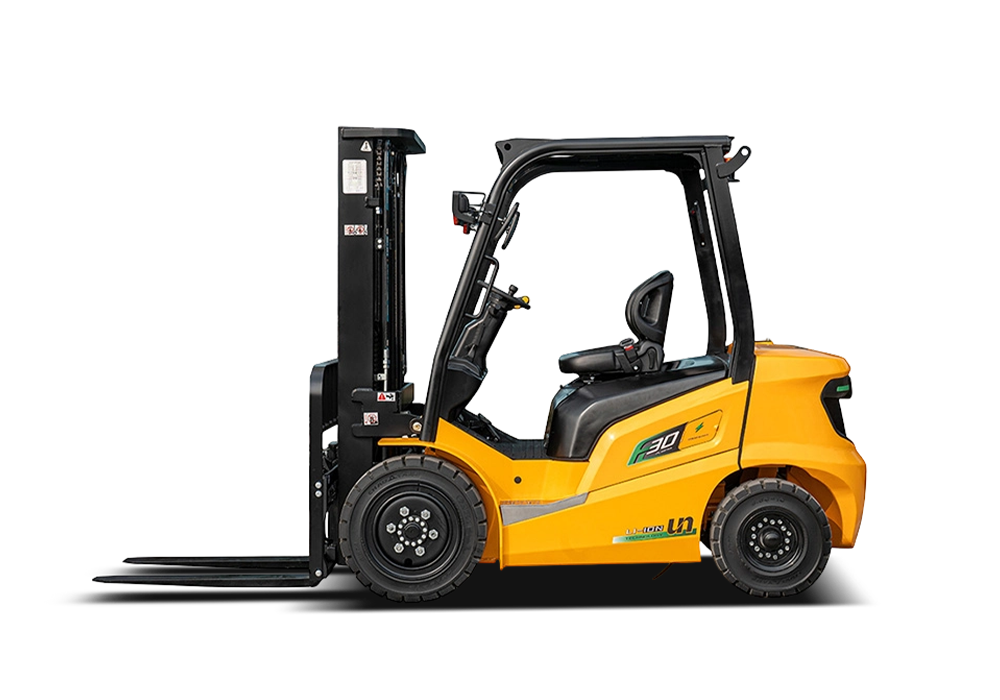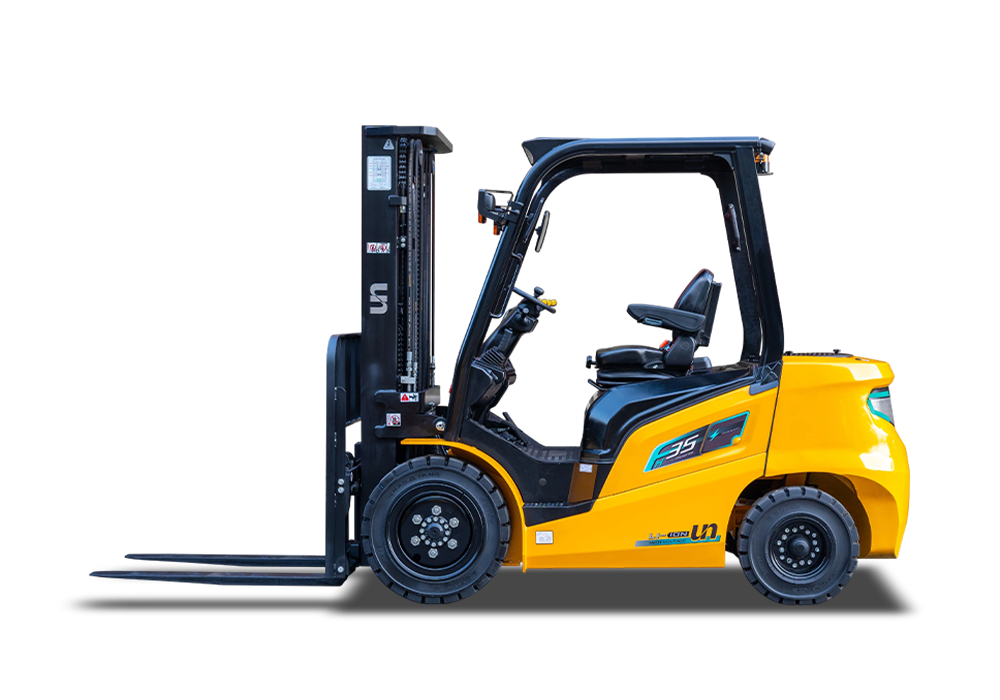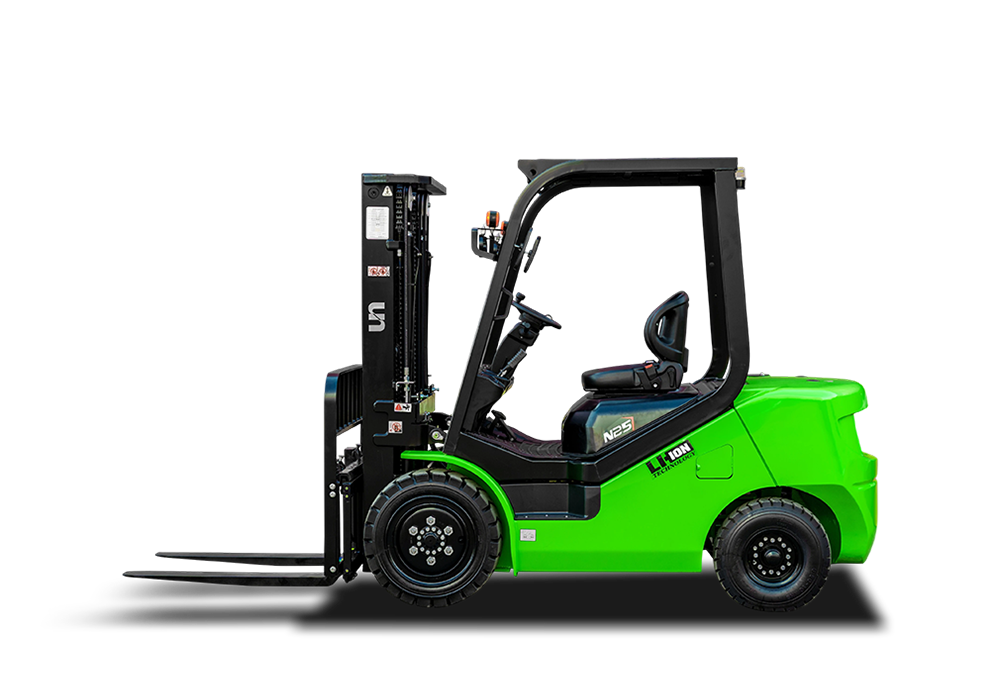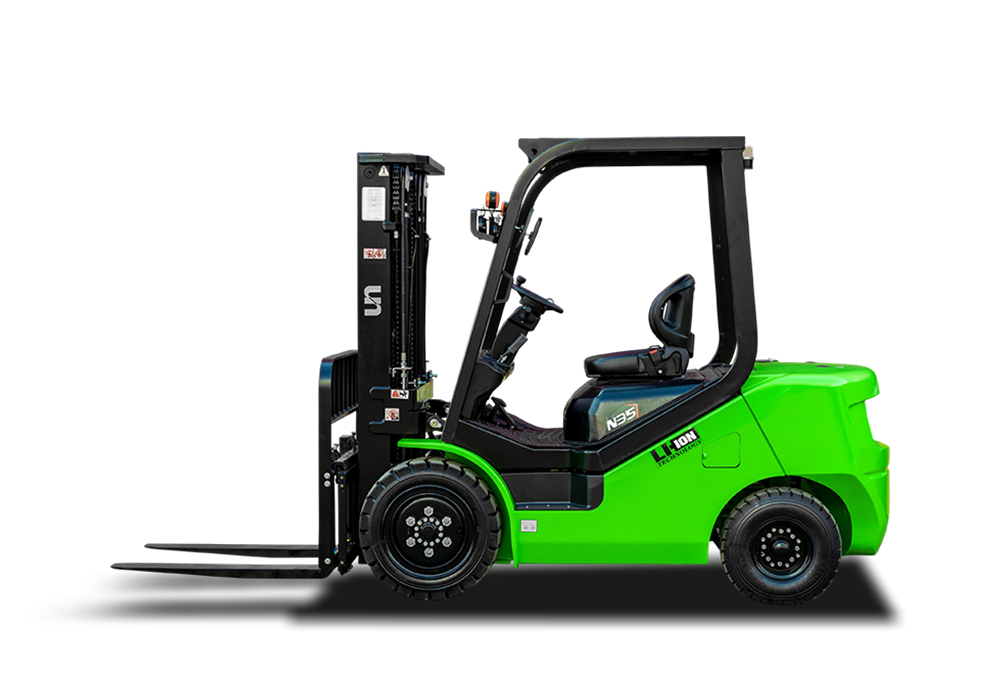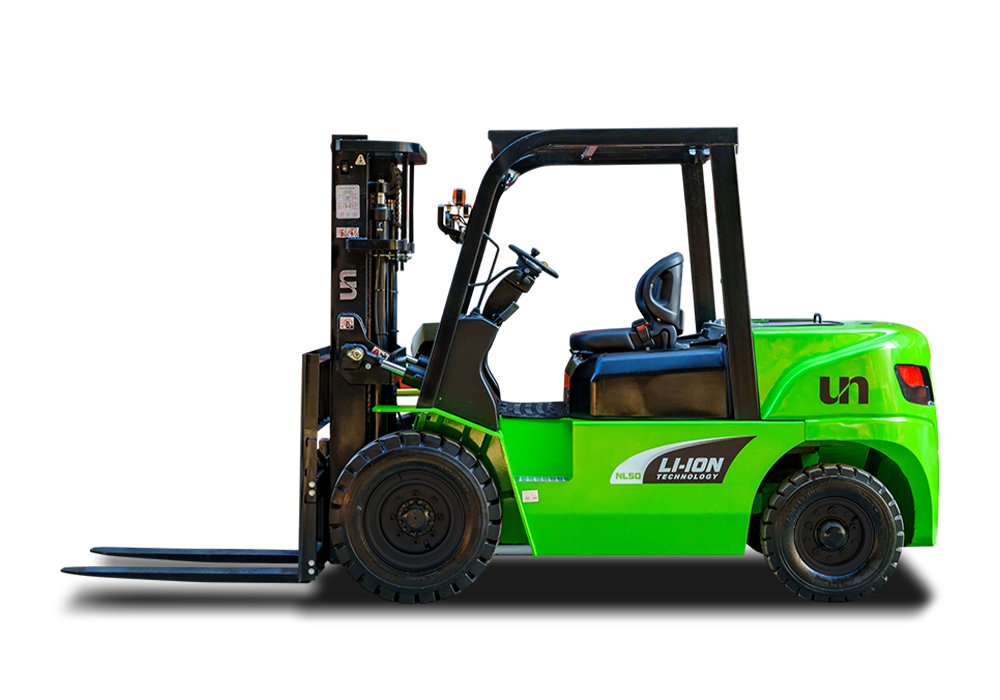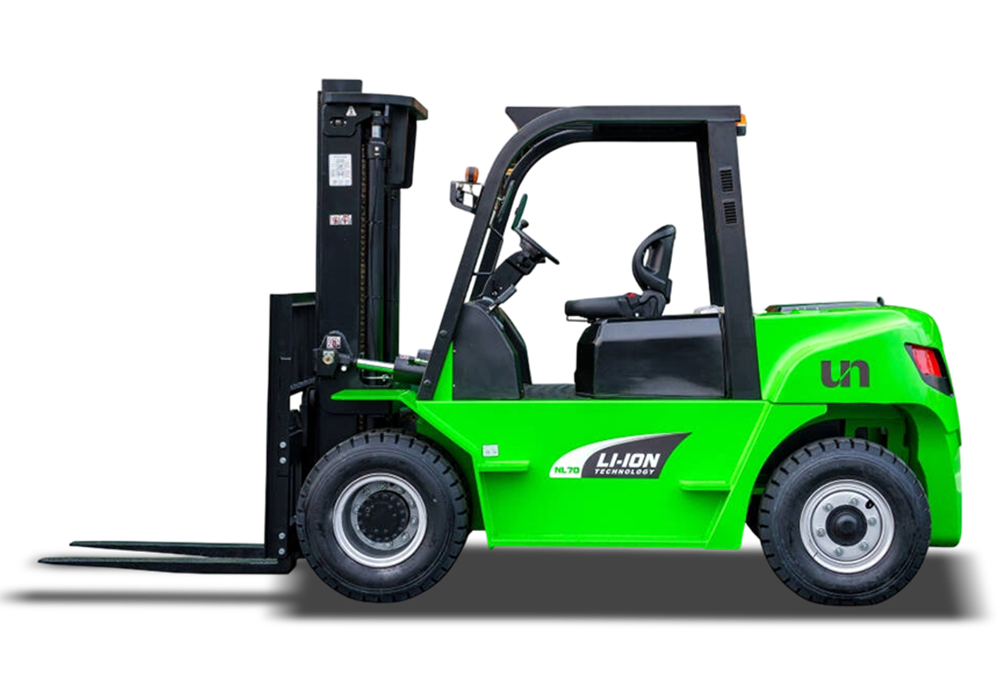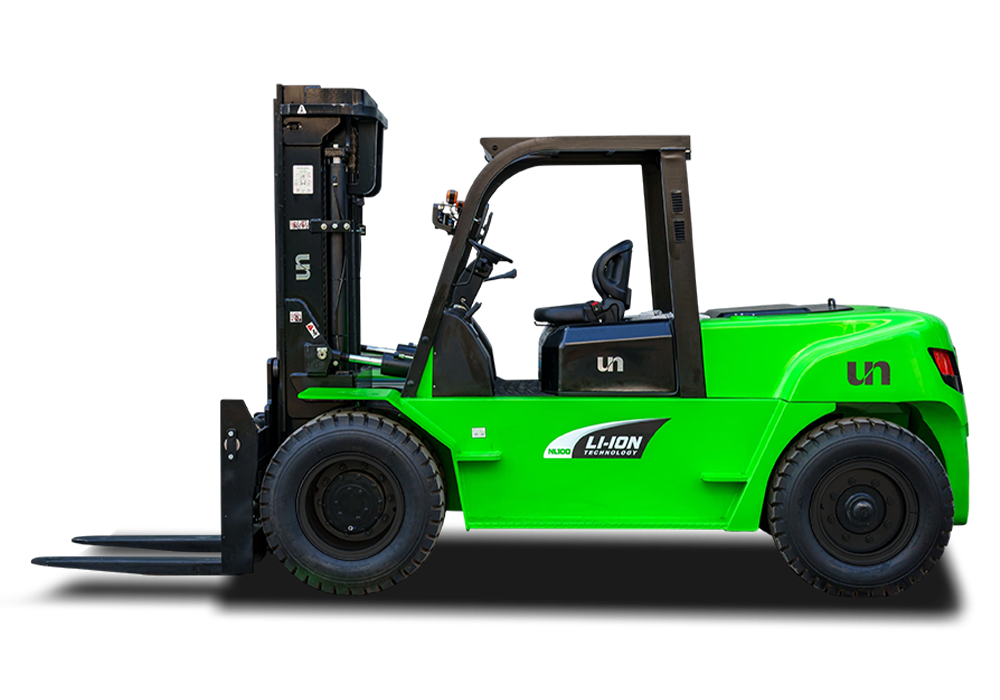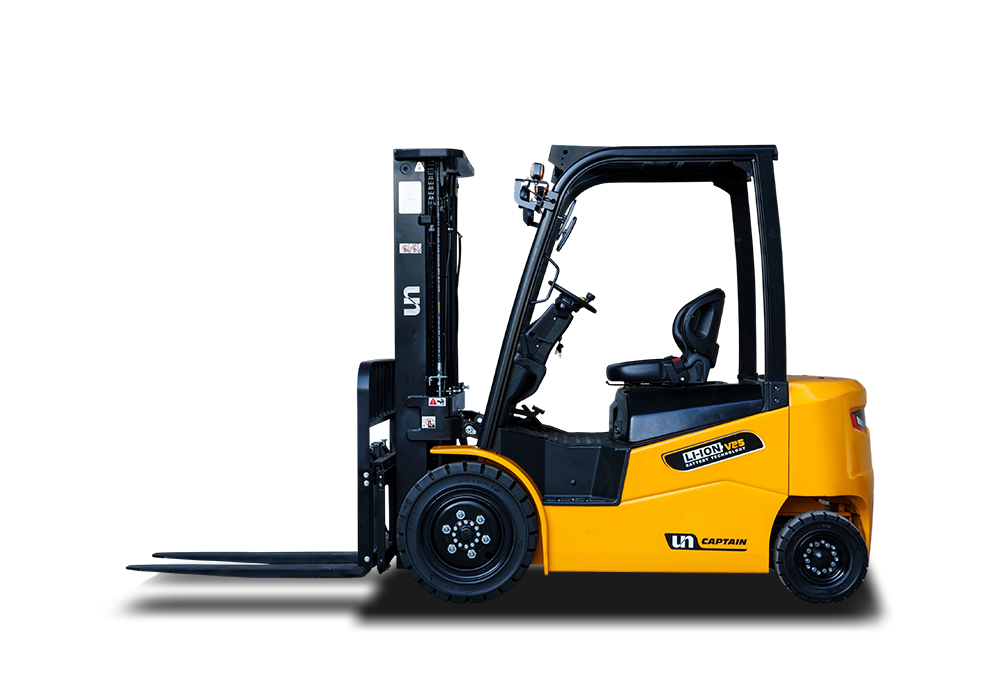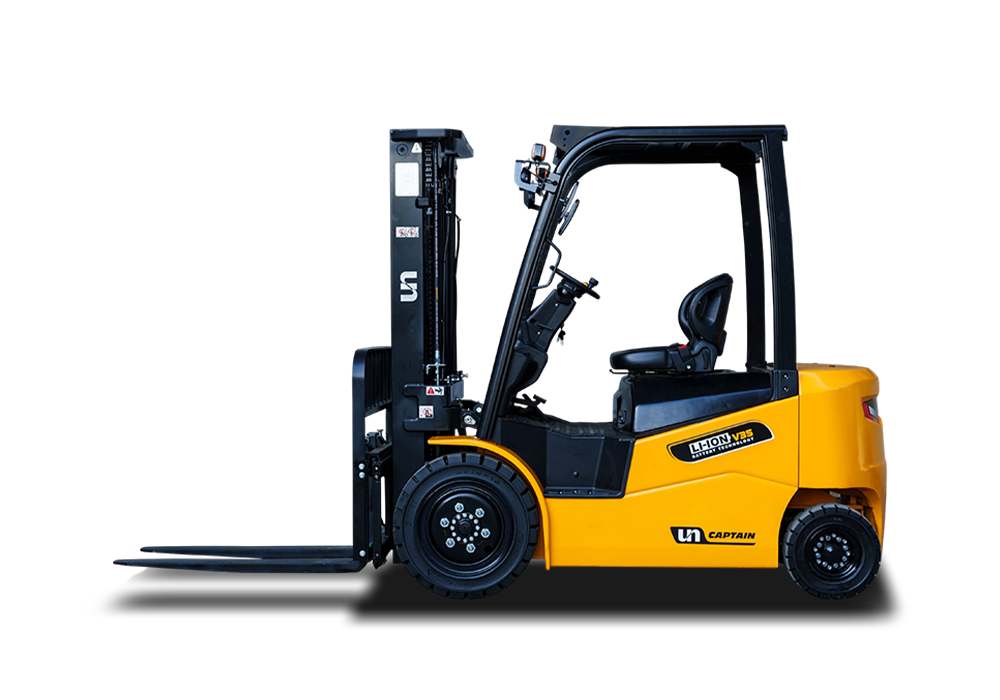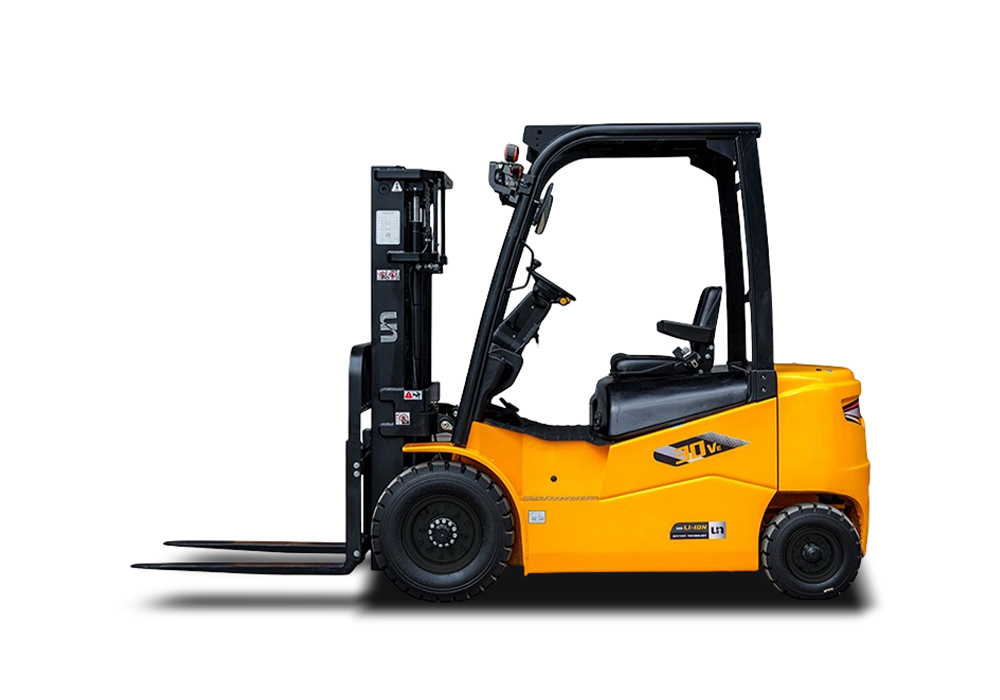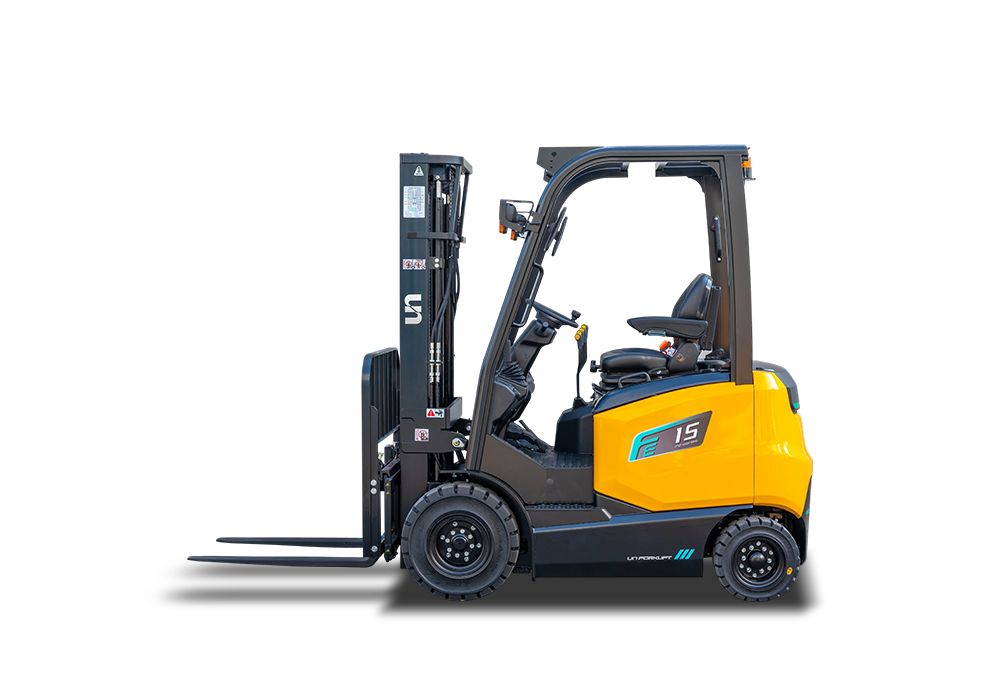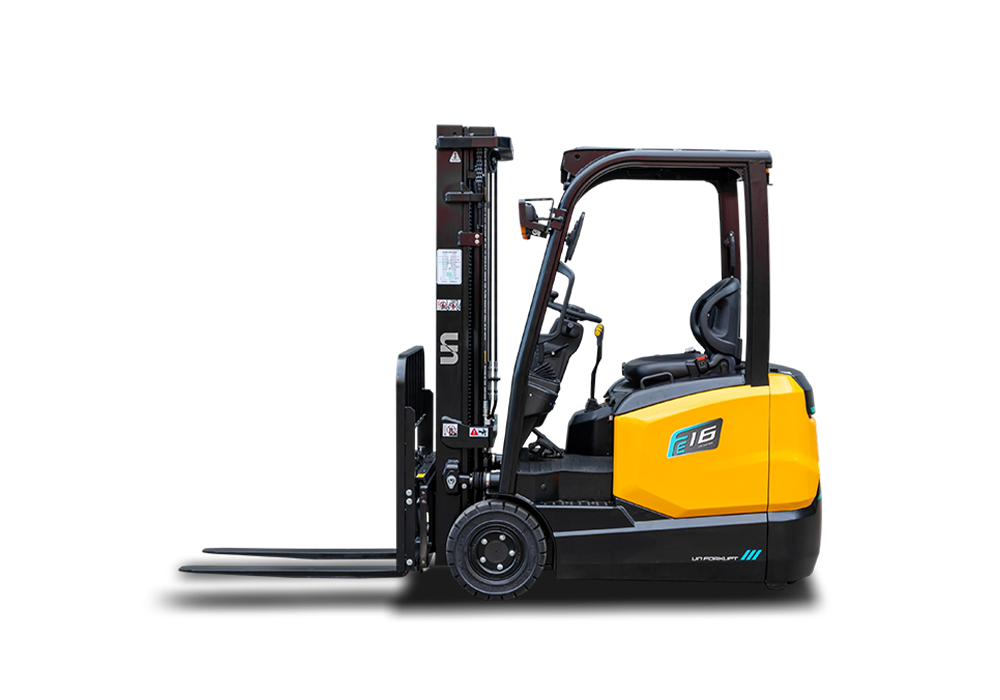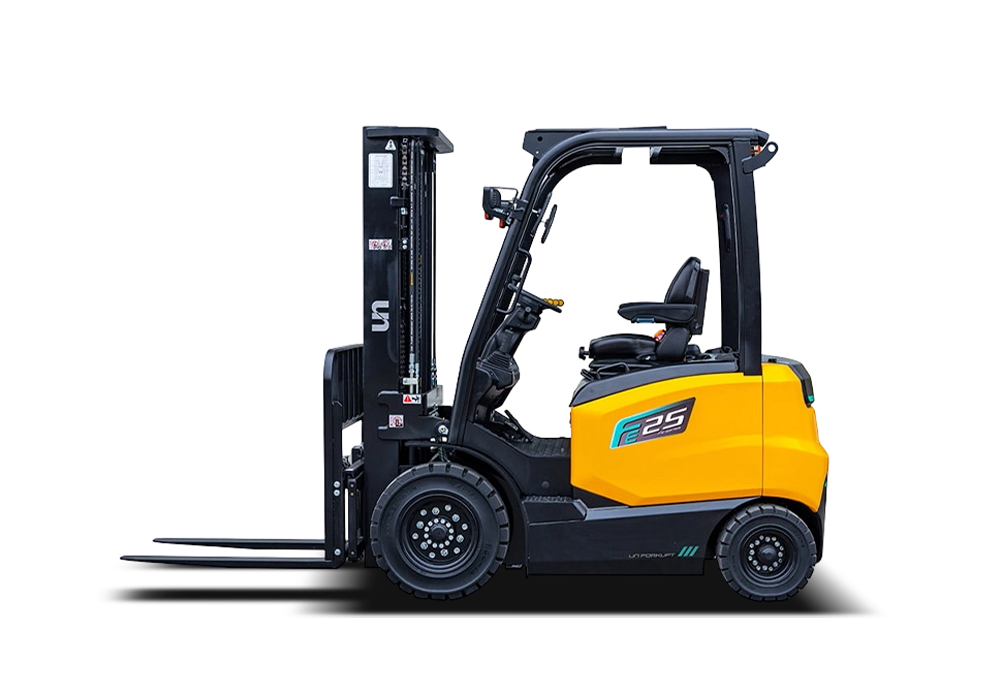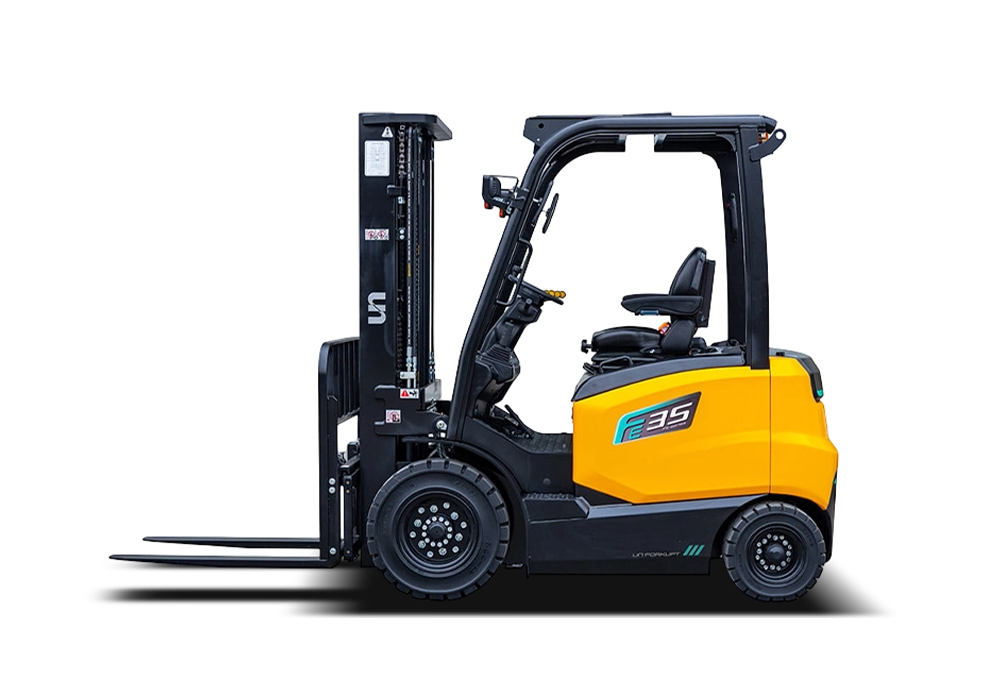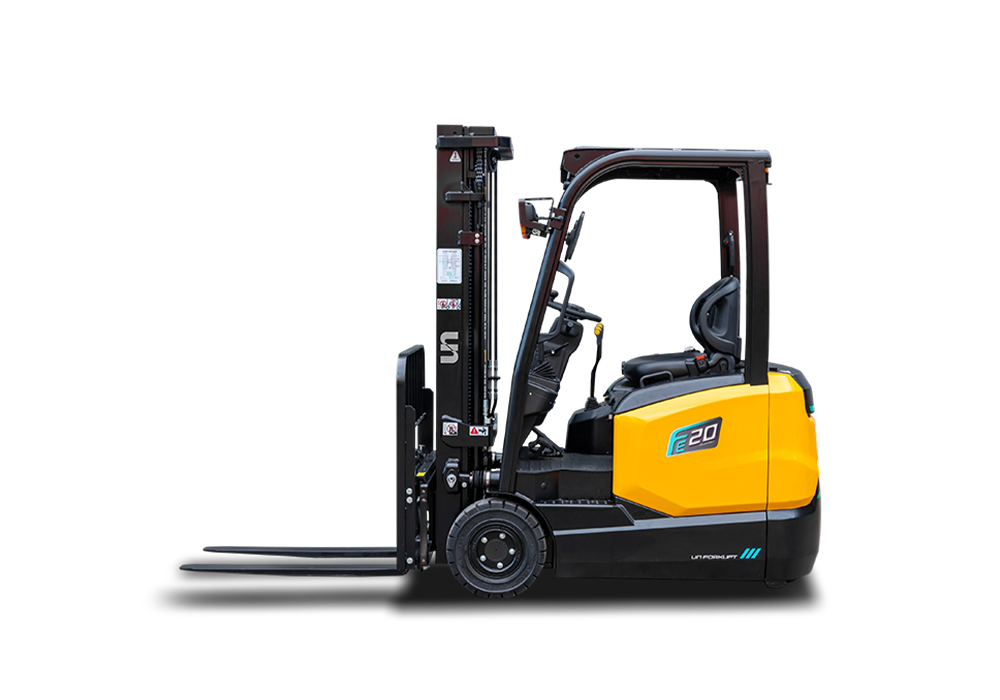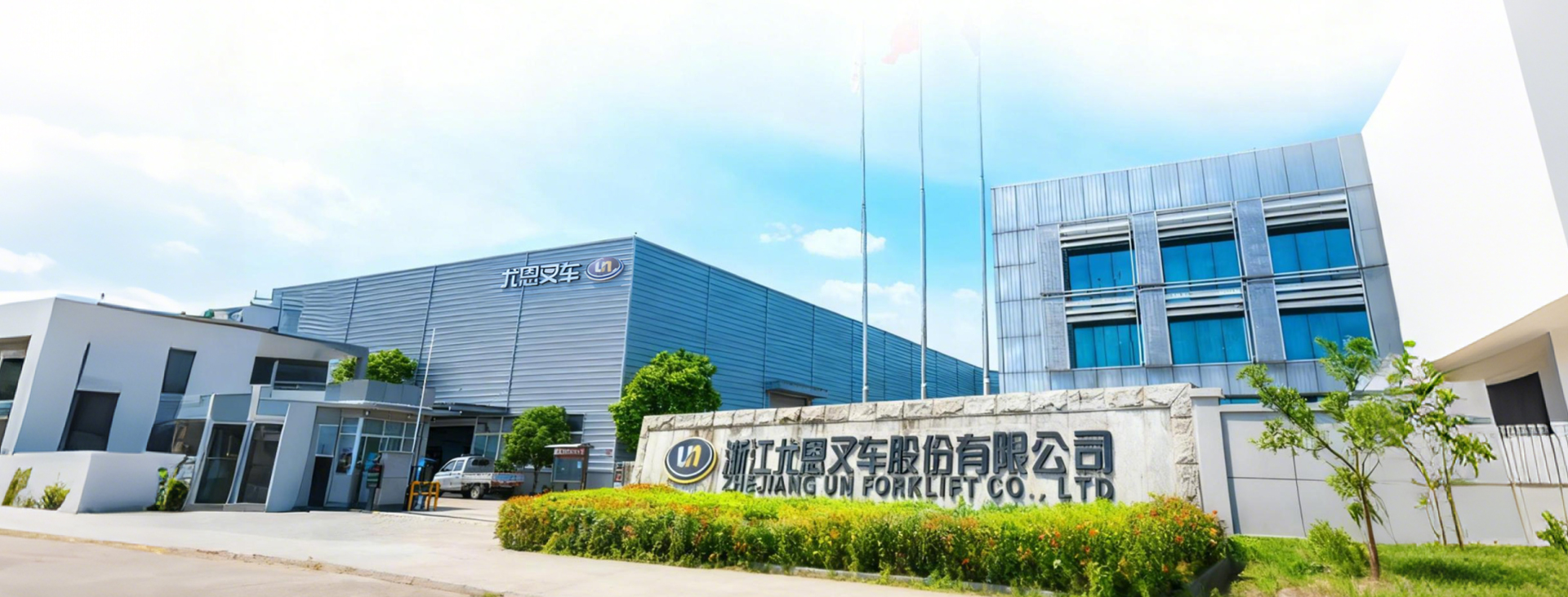Does the Electric Forklift Have an Emergency Descent Function in the Event of a Power Outage?
Operational Characteristics of an Electric Forklift
An electric forklift is widely used in warehouses, logistics centers, manufacturing plants, and distribution hubs where indoor operation, emission control, and noise reduction are important considerations. Powered by battery systems rather than internal combustion engines, these forklifts rely on electric drive motors and electrically controlled hydraulic systems for lifting and traveling functions. Zhejiang UN Forklift Co., Ltd., established in 1978, integrates research, development, production, sales, and service to deliver material handling equipment designed around energy saving, environmental protection, high efficiency, and safety. Within this framework, safety-related functions such as emergency descent mechanisms are critical in electric forklift design.
Unlike mechanical systems that rely purely on engine-driven hydraulics, an electric forklift depends on stored battery energy. This raises a practical question: what happens if the forklift experiences a sudden power outage while the forks are elevated with a load? Understanding the hydraulic configuration and safety backup systems provides clarity on how emergency descent is managed.
Hydraulic System Structure and Gravity-Based Descent
The lifting system of an electric forklift is controlled by hydraulic cylinders powered by an electric pump. When raising the forks, the motor-driven pump supplies hydraulic pressure to lift the mast. During lowering, however, the process is often assisted by gravity. Even in normal operation, lowering the forks typically requires controlled release of hydraulic pressure rather than additional power input. This fundamental design characteristic makes it possible for many electric forklift models to incorporate emergency descent functionality even when battery power is interrupted.
In the event of a power outage, some forklifts are equipped with manual lowering valves or emergency release mechanisms. These systems allow the operator or maintenance personnel to safely lower the forks by gradually releasing hydraulic pressure. The design prevents sudden drops and ensures controlled movement to protect both the load and surrounding personnel.
Emergency Descent Mechanisms in Modern Designs
Manufacturers integrate different approaches to address power interruption scenarios. The table below outlines common emergency descent solutions found in electric forklift systems:
| System Type | Operating Principle | Function During Power Loss |
| Manual Hydraulic Release Valve | Mechanical valve releases cylinder pressure | Allows controlled lowering of forks |
| Battery Backup Circuit | Auxiliary power supports short-term control | Enables limited hydraulic operation |
| Gravity-Controlled Descent | Weight of load assists downward motion | Requires controlled valve opening |
Zhejiang UN Forklift Co., Ltd., with its integrated R&D and manufacturing structure and annual production capacity of 15,000 units, incorporates safety-oriented engineering practices into its electric forklift models. The focus on safety ensures that emergency descent features are evaluated during design validation and testing processes.
Safety Considerations During Power Failure
When a power outage occurs, the primary safety objective is to prevent uncontrolled fork movement. Hydraulic lock valves and pressure-retaining components are typically installed to maintain mast position if electrical control signals are lost. These components ensure that the forks remain stable until a controlled descent procedure is initiated. In properly maintained equipment, sudden free fall of the forks is highly unlikely because hydraulic circuits are designed with built-in safeguards.
UN Forklift emphasizes high efficiency and safety in product development. Structural integrity of the mast, balanced chassis design, and calibrated hydraulic flow control contribute to maintaining load stability even during unexpected operational interruptions.
Battery Management and Power Interruption Scenarios
Power outages in an electric forklift can occur due to battery depletion, electrical system faults, or external power disruptions during charging cycles. Modern battery management systems monitor voltage levels and provide warnings before critical discharge occurs. Operators are typically alerted in advance, reducing the likelihood of sudden shutdown during lifting operations.
However, in rare cases where electrical power is lost while the forks are elevated, emergency descent procedures become essential. Training programs and operational guidelines provided through UN’s global sales and service network help operators understand how to activate manual lowering systems safely.
Role of Maintenance in Ensuring Emergency Function Reliability
Emergency descent mechanisms require periodic inspection to remain functional. Hydraulic valves, seals, and hoses must be checked for wear or contamination. Dust accumulation or fluid leakage may affect valve responsiveness. Regular maintenance ensures that emergency systems respond predictably during actual power interruptions.
UN Forklift’s worldwide service partners across Europe, North America, South America, Africa, and Asia provide technical support and spare parts access, enabling customers to maintain system integrity. Preventive servicing reduces risks associated with hydraulic malfunction and supports long-term operational stability.
Comparison with Internal Combustion Forklifts
Unlike internal combustion forklifts, which rely on engine-driven hydraulic pumps that stop immediately when the engine shuts down, electric forklift systems often include electronic control safeguards combined with hydraulic locking features. Both systems are designed to prevent uncontrolled descent, but electric models benefit from precise electronic monitoring of hydraulic states.
The following table compares emergency descent considerations between different forklift types:
| Forklift Type | Primary Power Source | Emergency Lowering Method |
| Electric Forklift | Battery-driven motor | Manual valve or backup circuit |
| Internal Combustion Forklift | Engine-driven hydraulic pump | Hydraulic release system |
Training and Operational Preparedness
Operator training is essential for managing emergency scenarios. Personnel should be familiar with the location and operation of manual lowering valves and understand safe unloading procedures. Clear communication and area clearance during descent prevent secondary accidents. Zhejiang UN Forklift Co., Ltd., through its integrated service structure, supports customers with operational guidance that aligns with safety-focused design principles.
By combining engineered hydraulic safeguards, optional backup systems, structured maintenance routines, and operator awareness, an electric forklift can provide controlled emergency descent capability in the event of a power outage. The integration of research, production, and service within UN Forklift’s organizational framework ensures that safety mechanisms are evaluated alongside efficiency and environmental considerations throughout the product lifecycle.
FAQ
Q: How does UN ensure stable battery performance in different climate conditions?
A: UN integrates its R&D and production capabilities to optimize battery management systems and thermal control structures in each electric forklift. With decades of manufacturing experience since 1978, the company designs energy systems that support consistent output under varying temperature conditions while aligning with its energy saving and environmental protection principles.
Q: What charging solutions are available for UN electric forklift models?
A: UN electric forklift products are designed to be compatible with standardized industrial charging infrastructure, including conventional lead-acid battery chargers and lithium battery systems depending on configuration. Customers can select charging solutions based on operational schedules, shift intensity, and facility layout, supported by UN’s global sales and service network.
Q: How does UN address operator safety in electric forklift design?
A: Safety is one of the core design concepts of UN products. The electric forklift range incorporates stable braking systems, ergonomic cabins, clear visibility masts, and electronic monitoring systems. These elements work together to reduce operational risks in warehouses, logistics centers, and manufacturing facilities.
Q: How does integrated manufacturing benefit the quality control of electric forklifts?
A: With a production area of 53,400 square meters and an annual capacity of 15,000 units, UN manages key production processes internally. This integrated structure allows coordinated control over component assembly, electrical systems calibration, and final testing procedures, helping ensure consistent manufacturing standards.
Q: What maintenance considerations should users keep in mind for an electric forklift?
A: Routine inspection of battery condition, electrical wiring, hydraulic systems, and drive motors is essential for long-term operation. Compared with internal combustion models, electric forklifts typically involve fewer mechanical wear parts, but proper battery care and scheduled servicing remain important for operational continuity.
Q: How does UN support international customers using electric forklifts?
A: UN Forklift has established sales and service partners across Europe, North America, South America, Africa, and Asia. This global network enables customers to access spare parts, technical consultation, and after-sales support in their local markets, helping reduce downtime and maintain operational efficiency.
Q: How does the electric forklift align with sustainability goals in modern logistics?
A: The electric forklift platform reflects UN’s focus on environmental protection and energy efficiency. By reducing direct emissions during operation and optimizing energy utilization, these models are suitable for indoor warehousing and urban logistics environments where emission control and noise reduction are key operational considerations.
Q: What factors should be evaluated when selecting an electric forklift model?
A: Customers should assess load capacity, lifting height, aisle width, battery type, and daily working hours. UN’s structured R&D and production system allows a range of configurations designed to meet diverse industrial handling requirements while maintaining a balance between efficiency and safety.





